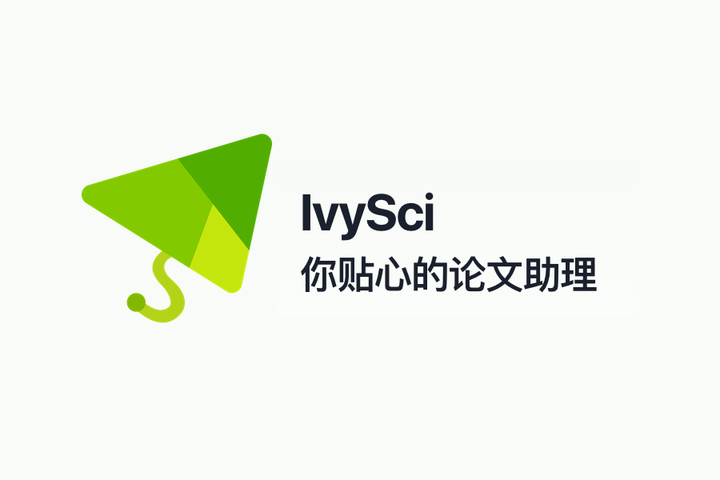Reforming Public-Private Partnerships in Railway Services: Learning from the Jakarta Monorail Project Debacle
DOI:
https://doi.org/10.35166/jipm.v7i1.51Keywords:
Infrastructure, Public-private partnerships, RailwayAbstract
Public-Private Partnerships (PPPs) offer a promising strategy for accelerating railway infrastructure development, yet they entail significant risks if not executed correctly. Indonesia has adopted PPPs since the 1990s, but their impact on railway services remains underexplored. This paper suggests improvements to Indonesia’s railway PPP mechanism to improve effectiveness, efficiency, and service deliverability. It argues that the effectiveness of railway PPPs is hindered by the public sector’s limited capacity and weak regulatory and institutional frameworks. The research employs a case study of the Jakarta Monorail project, terminated in 2015 after 11 years of problematic development. The research methods include literature reviews and a comparative analysis of the case with two prominent railway PPPs in other developing countries: the Bangkok Transit System in Thailand and the Delhi Mass Rapid Transit System Phase I in India. The findings lead to two key recommendations for the government: reorganizing the roles and coordination processes of key PPP agencies and establishing a continuous capacity-building scheme for PPP stakeholders. These recommendations may create a more supportive environment for PPPs, thereby increasing the likelihood of successful railway PPP implementation in Indonesia.
References
'Editorial: Risks of monorail derailing.' (2013, 16 November). The Jakarta Post. https://www.thejakartapost.com/news/2013/11/16/editorial-risks-monorail-derailing.html
‘Ini kronologi kisruh tiang pancang monorel Jakarta [The chronology of Jakarta Monorail pile chaos]. (2014, 21 February). DetikFinance. https://finance.detik.com/berita-ekonomi-bisnis/2504946/ini-kronologi-kisruh-tiang-pancang-monorel-jakarta?f9911023=
Adam, H., Manurung, A. H., Sembel, R., & Murdiono, J. (2023). The first refinancing of railway infrastructure in Indonesia: A part of public-private partnerships (PPPs). Journal of Accounting and Finance Management, 4(5), 332–342. https://doi.org/10.38035/jafm.v4i5.270
Alexandersson, G., & Hulten, S. (2009). Prospects and pitfalls of public-private partnerships in railway transportation: Theoretical issues and empirical experience. International Journal of Transport Economics, 36(1), 97–119. http://hdl.handle.net/2123/6172
Allport, R., Brown, R., Glaister, S., & Travers, T. (2008). Success and failure in urban transport infrastructure projects. Imperial College London. https://www.imperial.ac.uk/media/imperial-college/research-centres-and-groups/centre-for-transport-studies/Success-and-Failure-in-Urban-Transport-Infrastructure-Projects.pdf
Amindoni, A. (2016, 19 October). Jokowi leadership boosts private role in infrastructure. The Jakarta Post. https://www.thejakartapost.com/news/2016/10/19/jokowi-leadership-boosts-private-role-in-infrastructure.html
Asian Development Bank. (2016). Public-private partnership in infrastructure: Stepping-up investments for growth acceleration program subprogram 2, project report, and recommendation. https://www.adb.org/sites/default/files/linked-documents/48134-006-sd-02_1.pdf
Asian Development Bank. (2020). Public-private partnership monitor: Indonesia. https://www.adb.org/sites/default/files/publication/688886/public-private-partnership-monitor-indonesia.pdf
Badan Perencanaan Pembangunan Nasional & Japan International Cooperating Agency. (2004). The study on integrated transportation master plan for Jabotabek (phase ii) final report: Executive summary. Pacific Consultants International ALMEC Corporation. https://openjicareport.jica.go.jp/pdf/11763869_02.pdf
Badan Perencanaan Pembangunan Nasional. (2019). Public-private partnership: Infrastructure project plan in Indonesia 2019. https://www.infraPPPsworld.com/download-file/17727
Barker, S., & Wibowo, F. A. (2019, 23 May). Project preparation in Indonesia: How has the government attracted private participation? Global Infrastructure Hub. https://www.gihub.org/blog/project-preparation-in-indonesia-how-has-the-government-attracted-private-participation/
Bartlett, L., & Vavrus, F. (2017). Comparative case studies: An innovative approach. Nordic Journal of Comparative and International Education, 1(1), 5–17. http://doi.org/10.7577/njcie.1929
Bovaird, T. (2010). A brief intellectual history of the public-private partnership movement. In G. A. Hodge, C. Greve, & A. Boardman (Eds.), International handbook on public-private partnerships (pp. 43–67). Edward Elgar Publishing.
Chou, J. S., & Pramudawardhani, D. (2015). Cross-country comparisons of key drivers, critical success factors, and risk allocation for public-private partnership projects. International Journal of Project Management, 33(5). 1136–50. http://doi.org/10.1016/j.ijproman.2014.12.003
Dehornoy, J. (2012). PPPS in the rail sector: A review of 27 projects. https://mpra.ub.uni-muenchen.de/38415/1/Dehornoy_Review_of_rail_PPPS_2012_.pdf
Dewi, S. W. (2013, 17 October). Monorail project back on track. The Jakarta Post. https://www.thejakartapost.com/news/2013/10/17/monorail-project-back-track.html
Esser, F., & Vliegenthart, R. (2017). Comparative research methods. In J. Matthes, R. Potter, & C. S. Davis (Eds.), International Encyclopedia of Communication Research Methods. Wiley-Blackwell. https://doi.org/10.1002/9781118901731.iecrm0035
Floyd, P., Cohen, J., & Allport, R. (2017). The operator’s story case study: Bangkok’s story. World Bank and Imperial College London. https://www.imperial.ac.uk/media/imperial-college/research-centres-and-groups/centre-for-transport-studies/rtsc/world-bank/OperatorsStory_Bangkok-BMCL_Final-060717.pdf
Foster Infrastructure. (2016). Success factors in the Philippines. PPPS Program, Australia. http://mams.rmit.edu.au/ci3eajl92q6zz.pdf
Global Infrastructure Hub. (2019). Leading practices in governmental processes facilitation infrastructure project preparation: A practical guide for governments, informed by a country-lens review of leading practices. Crisil. https://cdn.gihub.org/umbraco/media/2344/gih_project-preparation_full-document_final_art_web.pdf
Hansen, S., Too, E., & Le, T. (2018). Lessons learned from a canceled urban transport project in a developing country: The importance of the front-end planning phase. International Journal of Technology, 9(5), 898–909. http://doi.org/10.14716/ijtech.v9i5.1559
Higton, N., & Clark S. L. (2010, 27-29 April). Using PPPs to deliver successful rail projects. Proceedings. 2010 Joint Rail Conference. https://doi.org/10.1115/JRC2010-36198
Investor Daily. (2015, 12 January). Monorail projects hit obstacles. Jakarta Globe. https://jakartaglobe.id/context/monorail-projects-hit-obstacles/.
Japan International Cooperating Agency. (2012). Master plan for establishing metropolitan priority area for investment and industry in Jabodetabek area: Final report. Priority Project Sheets. https://openjicareport.jica.go.jp/pdf/12083945_04.pdf.
Kacaribu, F., Gultom, Y., Desdiani, N. A., Sabrina, S., Qurratu’ain, N., & Moeis F. (2019). Peer review and capacity building on APEC infrastructure development and investment: Indonesia. APEC Policy Support Unit. https://www.apec.org/Publications/2019/11/Peer-Review-and-Capacity-Building-on-APEC-Infrastructure-Development-and-Investment-Indonesia
Klijn, E. H., & Teisman, G. R. (2000). Governing public-private partnerships: Analyzing and managing the process and institutional characteristics of public-private partnerships. In S. P. Osborne (Ed.), Public-private partnerships: Theory and practice in international perspective (pp. 84–102). Routledge.
Lin, D. Y. (2014). Can public-private partnerships solve Indonesia’s infrastructure needs? McKinsey & Company. https://www.mckinsey.com/~/media/McKinsey/Locations/Asia/Indonesia/Our%20Insights/Can%20PPPs%20solve%20Indonesias%20infrastructure%20needs/Can%20PPPs%20solve%20Indonesias%20infrastructure%20needs.pdf
Mandri-Perrott, C. (2010). Private sector participation in light rail-light metro transit initiatives. Public-Private Advisory Facility, Washington DC. https://PPPs.worldbank.org/public-private-partnership/library/private-sector-participation-light-rail-light-metro-transit-initiatives
Marbun, J. (2014, 21 February). Adhi karya: Harga tiang monorel hasil audit [Adhi karya: monorail pillars’ priced based on audit results]. Republika. https://republika.co.id/berita/n1c84l/adhi-karya-harga-tiang-monorel-hasil-audit
Mcbeth, J. (2014, 13 November). Jokowi makes clear his infrastructure priorities. The Straits Times. https://www.straitstimes.com/opinion/jokowi-makes-clear-his-infrastructure-priorities
Menard, C. (2013). Is public-private partnership obsolete? Assessing the obstacles and shortcomings of PPPS. In P. De Vries & E. Yehoue (Eds.), The Routledge companion to public-private partnership. Routledge. https://shs.hal.science/halshs-00653090/document
Mitchell, J. C. (1983). Case and situation analysis. Sociological Review, 31, 187–211. https://doi.org/10.1111/j.1467-954X.1983.tb00387.x
Noor, M. M. H. (2016). Mengenal kerja sama pemerintah dengan badan usaha (KPBU): Skema public-private partnership (PPP) di Indonesia. https://www.djkn.kemenkeu.go.id/artikel/baca/11824/Mengenal-Kerjasama-Pemerintah-dengan-Badan-Usaha-KPBU-Skema-Public-Private-Partnership-PPPS-di-Indonesia.html
Nugroho, R. (2011). Public-private partnership as a policy dilemma. International Journal of Administrative Science and Organization, 18(3), 178–188. http://www.jke.feb.ui.ac.id/index.php/jbb/article/viewFile/1325/1208
Organization for Economic Cooperation and Development. (2012). Recommendation of the council on principles for public governance of public-private partnerships. https://www-oecd-org.ezp.lib.unimelb.edu.au/governance/budgeting/PPPS-Recommendation.pdf
Oxford Business Group. (2007). Just the ticket: Islamic bonds fuel the Jakarta monorail project. Emerging Indonesia 2007.
Parikesit, D., Roesly, S., Ismujatmika, P., & Widianingrum, R. (2017). Managing risks in the Indonesian infrastructure projects: Lesson from the case studies of the Indonesia infrastructure roundtable. Journal of Built Environment, Technology, and Engineering, 3, 195–203. https://www.jbete.com/wp-content/uploads/2018/01/JBETE3_18.pdf
Purbo, R. K., Smith, C., & Bianchi, R. (2019). Lesson learned from public-private partnerships in Indonesia’s water sector. Bulletin of Indonesian Economic Studies, 55(2), 193–212. https://doi.org/10.1080/00074918.2018.1550250
Rahman, H. Z., Miraj, P., & Andreas, A. (2019). Exploring public-private partnership scheme in operation and maintenance stage of railway project. Sustainability, 11(22), 1–13. http://doi.org/10.3390/su11226517
Rebeiz, K. S. (2012). Public–private partnership risk factors in emerging countries: BOOT illustrative case study. Journal of Management in Engineering, 28(4), 421–428. http://doi.org/10.1061/(ASCE)ME.1943-5479.0000079
Sarana Multi Infrastruktur. (2021). Municipal public-private partnership (PPPS) in Indonesia. PT SMI. https://ptsmi.co.id/cfind/source/files/smi-insight-q3-2021---municipal-public-PPPs-in-indonesia.pdf
Salim, W., & Negara, S. D. (2018). Infrastructure development under the Jokowi administration: Progress, challenges, and policies. Journal of Southeast Asian Economies, 35(3), 386–401. http://doi.org/10.1355/ae35-3e
Singgih, V., & Aditya, A. (2019, 27 February). The $60b race to fix Jakarta’s choking traffic. Financial Review. https://www.afr.com/world/asia/the-60b-race-to-fix-jakartas-choking-traffic-20190227-h1bs4l
Singgih, V., & Sipahutar, T. (2019, 8 January). Jokowi wants to save billions lost to infamous Jakarta traffic. Bloomberg. https://www.bloomberg.com/news/articles/2019-01-08/jokowi-wants-to-save-billions-lost-to-infamous-jakarta-traffic
Tan, J., & Tan, K. (2016, 7 October). Indonesia: Overview of Indonesia public-private partnership (PPPS) regulatory framework. Clyde & Co. https://www.clydeco.com/insight/article/overview-of-indonesian-public-private-partnership-PPPs-regulatory-framework?utm_source=Mondaq&utm_medium=syndication&utm_campaign=LinkedIn-integration
Transport and ICT Unit. (2017). Railway reform: Toolkit for improving rail sector performance. World Bank, Washington DC. https://ppiaf.org/sites/ppiaf.org/files/documents/toolkits/railways_toolkit/PDFs/RR%20Toolkit%20EN%20New%202017%2012%2027.pdf
United Nations for Economic and Social Commission for Asia and the Pacific. (2005). PPPS readiness self-assessment. https://www.unescap.org/sites/default/files/ESCAP%20PPPS%20Readiness%20Tool.pdf
Verougstraete, M., & Enders, I. (2014). Traffic demand risk: The case of Bangkok’s skytrain (BTS). The United Nations of Economic and Social Commission for Asia and the Pacific. https://www.unescap.org/sites/default/files/Case%201%20_Traffic%20Demand_%20Bangkok%20BTS.pdf
Wibowo, A., & Alfen H. W. (2015). Government-led critical success factors in PPPS infrastructure development. Built Environment Project and Asset Management, 5(1), 121–134. http://doi.org/10.1108/BEPAM-03-2014-0016
Wibowo, A., & Permana, A. (2015). Defining public-private partnership in infrastructure development within the Indonesian context. In A. Akintoye, M. Beck, & M. Kumaraswamy (Eds.), Public private partnerships: A global review. Routledge. https://doi.org/10.4324/9781315686516
Widjaja, G. (2017). Implementation of public-private partnership in Indonesia. International Journal of Economic Research, 14(15), 235–245. https://www.researchgate.net/publication/321704285_Implementation_of_public-private_partnership_in_Indonesia
Widyanto, U. & Malkhamah, S. (2013). Restructuring Indonesian railway: Integration or separation. Civil Engineering Forum, 22(3), 1–9. https://jurnal.ugm.ac.id/jcef/article/view/18906
World Bank. (2019). Implementation, completion, and results report on a loan in the amount of USD29.6 million to the republic of Indonesia for the Indonesia infrastructure guarantee fund project. http://documents.worldbank.org/curated/en/763571565036833453/pdf/Indonesia-Infrastructure-Guarantee-Fund-Project.pdf
Wunderlich, W., & Mayer, O. (2017). PPPS in Japan’s railway system: Success story. International Transportation, 69(1), 21–25 http://doi.org/10.24053/IV-2017-0108
Yang, J., Nisar, T. M., & Prabhakar, G. P. (2014). Critical success factors for build-operate-transfer (BOT) projects in China. The Irish Journal of Management, 36(3), 147–161. http://doi.org/10.1515/ijm-2017-0016
Downloads
Published
Issue
Section
License
Copyright (c) 2024 Journal of Infrastructure Policy and Management (JIPM)

This work is licensed under a Creative Commons Attribution-ShareAlike 4.0 International License.















